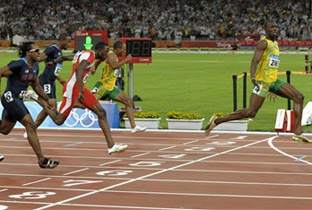Published
Tue, May 31, 2011, 15:15
- This week we look at what to do when your music production abilities plateau.

I've been thinking this week about a tweet I recently read, which struck a chord with me. It stated: "the more I learn about production, the longer it takes." Unfortunately, I'm not in a position to assign credit where it's due, but the sentiment is worth exploring, as it goes to very heart of why we do what we do. It also neatly encapsulates how hard it is to improve once a reasonable standard of production has been obtained but why striving for improvements is so important.
In many ways, the desire and struggle to improve actually matches the creative workflow offered by the DAWs we use. I often reassure beginners at the music college where I teach that even those firing up Logic for the first time will be able to record and sequence music within 30 minutes of their first session. This would be equally true were Live, Pro Tools, Cubase or any other of the leading DAW platforms their sequencer of choice, as the learning curve is so shallow.
Of course newcomers to the software improve rapidly, but it's not uncommon for all of us to get stuck in our development and to feel that, no matter how hard we try, improving on previous mixes is an insurmountable challenge. This is partly due to the twin nature of making music with technology; for starters, we need to know how the technology works so that we're comfortable with as many of its features as possible. Secondly, we need to improve as musicians, so that our musical development is supported by our use of technology and vice versa.
You'd be forgiven for thinking that the idea of productions getting harder as our skill sets improve is a little counterintuitive. After all, don't we sharpen our skills precisely so that we can bash out work of high quality? For musical development to take place in the world around us, the only answer to this question is "no."
Imagine you're a 100M Olympic runner and, in your semifinal heat, you run a new world record time. You'd be thrilled, naturally, but imagine then watching as someone else betters your time in the other heat. Would you give up, accept that you couldn't do any better and not even take your place in the final? Of course not—any athlete capable of breaking a world record, whether it stands for years or mere minutes, develops a mentality that the next performance will always be better.
This is a mindset that many of us would do well to carry into production work when we feel a little flat: that we'll definitely be capable of better work, we just need to work harder to produce it. Inevitably, this will take longer as we develop the skills to better assess which aspects of a production are working and which we need to cast aside. Think too about the balance of art and control; better musical ideas in the first place but also a better sense of how to best represent them with technology. Techniques such as extended automation, extended plug-in chains, multiple take comping, synthesizer programming—these all demand more of our time as we get better at using them, so it makes sense that better tracks will require a greater time investment.